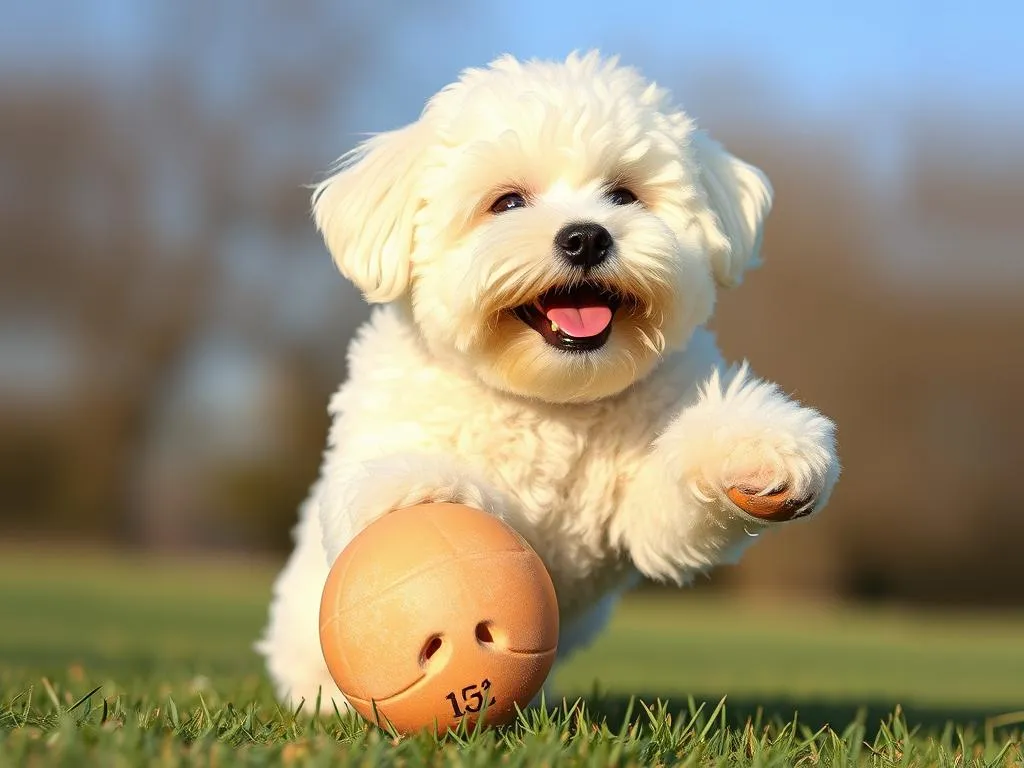
Introduction
Proper care for your furry friend is crucial for their overall well-being, and one of the most important aspects of dog health care is regular exercise. This is especially true for the Bichon Frise, a lively and playful breed that thrives on activity. Understanding how much exercise a Bichon Frise needs can help you keep your pet healthy, happy, and well-behaved. In this guide, we will delve into the optimal exercise requirements for Bichon Frises, along with essential health care tips to enhance their quality of life.
Understanding the Bichon Frise Breed
General Characteristics
The Bichon Frise is a small breed known for its cheerful disposition and fluffy white coat. Adult Bichon Frises typically weigh between 10 to 20 pounds and stand about 9.5 to 11.5 inches tall. Their distinctive curly coat is not only adorable but also hypoallergenic, making them a popular choice for families with allergies. Bichon Frises are known for their friendly and playful temperament, often forming strong bonds with their owners. They are social dogs that enjoy interacting with people and other pets.
Common Health Issues
Despite their charming nature, Bichon Frises are prone to certain health issues, including skin allergies, dental problems, and hip dysplasia. Regular veterinary check-ups are essential to monitor their health. Exercise plays a vital role in preventing obesity, which can exacerbate many common health problems. By ensuring your Bichon Frise gets enough exercise, you can help promote a longer, healthier life.
Importance of Exercise for Bichon Frises
Physical Health Benefits
Regular exercise provides numerous physical health benefits for Bichon Frises:
- Weight Management: Maintaining a healthy weight is critical for preventing obesity-related diseases.
- Cardiovascular Health: Active dogs have stronger hearts and better circulation.
- Muscle and Joint Health: Exercise helps build and maintain muscle mass, which supports joints and mobility.
Mental Health Benefits
The mental health of your Bichon Frise is just as important as their physical health. Exercise contributes by:
- Preventing Behavioral Issues: Bichon Frises that do not get enough exercise may develop destructive behaviors due to boredom.
- Reducing Anxiety and Stress: Physical activity can alleviate anxiety and help your dog feel more relaxed.
- Stimulating Mental Engagement: Engaging in play and interactive activities keeps your dog mentally sharp.
How Much Exercise Does a Bichon Frise Need?
Recommended Exercise Duration
On average, a Bichon Frise requires about 30 minutes to 60 minutes of exercise each day. This can be broken up into several short sessions throughout the day, making it manageable even for busy owners. Comparatively, other small dog breeds may require similar amounts of exercise, but it’s essential to tailor the routine to your Bichon Frise’s energy levels and individual needs.
Types of Exercise
To keep your Bichon Frise healthy and happy, consider incorporating various types of exercise into their routine:
-
Walking: A daily walk is one of the simplest and most effective ways to provide exercise. Aim for at least two walks a day, each lasting around 15 to 30 minutes. Use a harness instead of a collar to prevent strain on their neck.
-
Playtime: Engage in interactive games like fetch, tug-of-war, or hide-and-seek. These activities not only provide physical exercise but also promote bonding.
-
Socialization: Allow your Bichon Frise to interact with other dogs and people. Visits to dog parks or playdates can enhance their social skills and provide additional physical activity.
Age and Exercise Needs
It’s important to adjust exercise routines based on your Bichon Frise’s age:
-
Puppies: Young Bichon Frises have a lot of energy but require shorter bursts of activity. Aim for 5 minutes of exercise per month of age, up to twice a day.
-
Adult Bichon Frises: Adults require the standard 30 to 60 minutes of exercise daily.
-
Senior Bichon Frises: Older dogs may need less intense exercise. Shorter walks and gentle play can help keep them active without overexertion.
Creating an Exercise Routine
Daily Schedule
Establishing a daily exercise routine for your Bichon Frise can be as simple as:
- Morning Walk: 15-20 minute walk to start the day.
- Midday Play: 15 minutes of interactive playtime.
- Evening Walk: Another 15-20 minute walk or play session.
Incorporate variability by changing the walking route or trying new games to keep your dog engaged.
Monitoring and Adjusting the Routine
As you establish an exercise routine, it’s crucial to monitor how your Bichon Frise responds:
-
Signs of Over-Exercising: Excessive panting, limping, or reluctance to continue can indicate that your dog is over-exercised.
-
Signs of Under-Exercising: Destructive behavior, excessive barking, or hyperactivity may suggest that your dog isn’t getting enough activity.
Be prepared to adjust the routine based on your Bichon Frise’s health changes or aging process.
Additional Health Care Tips for Bichon Frises
Nutrition and Diet
A balanced diet is fundamental to keeping your Bichon Frise healthy and energetic. Here are some nutritional tips:
-
Quality Dog Food: Choose high-quality dog food that meets the nutritional needs of small breeds. Look for options with real meat as the first ingredient.
-
Healthy Treats: Use low-calorie treats for training and rewards, and be cautious not to overfeed.
Grooming Needs
Maintaining a healthy coat is essential, especially for a Bichon Frise. Regular grooming helps prevent matting and skin issues that can arise from exercise:
-
Brushing: Brush your dog’s coat several times a week to prevent tangles.
-
Bathing: Regular baths help keep the coat clean, but avoid over-bathing as it can strip natural oils.
Regular Veterinary Care
Routine veterinary care plays a crucial role in dog health care:
-
Vaccinations and Health Screenings: Keep your Bichon Frise up to date on vaccinations and schedule regular check-ups to catch any health issues early.
-
Connection to Exercise: Regular vet visits allow for discussions about how exercise is impacting your dog’s health, ensuring they remain fit and active.
FAQs About Bichon Frise Exercise
Common Concerns
-
How much is too much exercise?: Generally, if your dog is panting excessively, reluctant to walk, or shows signs of fatigue, they may be over-exercised.
-
Can Bichon Frises exercise indoors?: Yes! Indoor games and short training sessions can also provide mental and physical stimulation.
-
What are the best activities for Bichon Frises?: Activities like fetch, agility courses, and social play with other dogs are excellent choices.
Expert Recommendations
Veterinarians and pet trainers often emphasize the importance of a well-rounded exercise routine tailored to your dog’s specific needs. Engaging with professionals can provide additional insights and recommendations.
Conclusion
The significance of exercise in maintaining a healthy Bichon Frise cannot be overstated. A consistent exercise routine not only contributes to physical health but also enhances mental well-being. By understanding your dog’s exercise needs and integrating them into your daily schedule, you can provide the care your furry friend deserves. Happy exercising!









